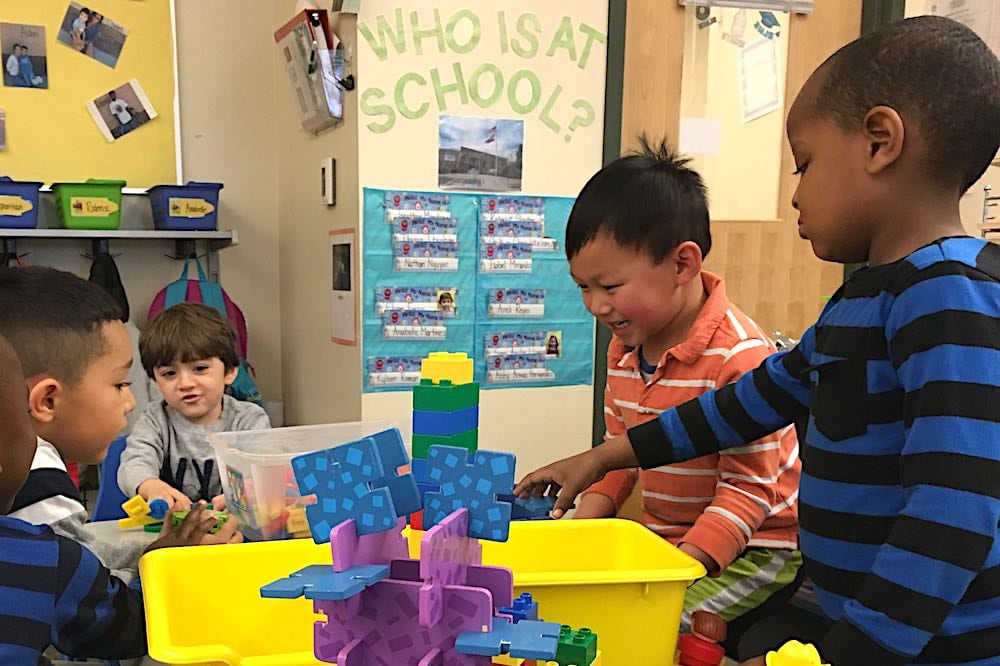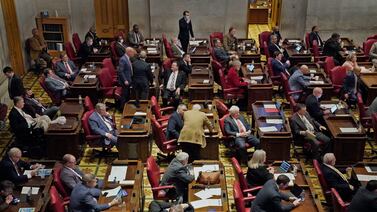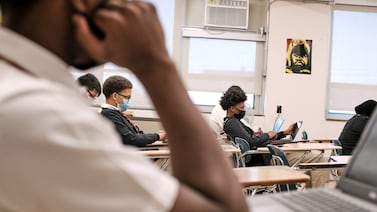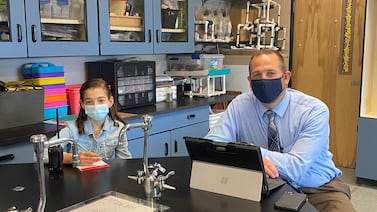The recent coronavirus outbreaks in two suburban Denver child care centers were the first ones documented in Colorado’s early childhood sector, but experts say they won’t be the last — especially as more providers consider reopening in the coming months.
But with thoughtful and consistent precautions, advocates say child care providers can minimize the risk and even provide lessons for K-12 schools as they begin to reopen for in-person learning in the fall.
“Many child care programs will become really skilled at this and I do think they’ll have a lot to offer to schools,” said Rhian Allvin, CEO of the National Association for the Education of Young Children.
Many of Colorado’s 3,700 licensed providers serving children 0-5 closed temporarily when the pandemic hit, but hundreds stayed open throughout, and more are re-opening every week. State officials have instituted a raft of extra precautions to curb the spread of the virus, including limiting class sizes to 10 children, requiring parents to drop off and pick up at the front door, and recommending masks for children over 3.
The first child care-related coronavirus outbreak was identified May 7 at the Westminster location of the Learning Experience, according to the state health department. Two staff members there had confirmed cases of the virus. The second outbreak, at Orchard Valley Learning Center in Centennial, was identified May 9 according to the state, and included three confirmed cases of COVID-19, two in staff members and one in a child.
Leaders at the two centers didn’t respond to calls or emails, but officials at the two local health departments investigating the outbreaks said both centers were following all the required health protocols when the outbreaks occurred.
A spokeswoman for Jefferson County Public Health said in an email The Learning Experience center closed for the required 24 hours so deep cleaning could be done, plus an additional two weeks. A recording at the center’s phone number said it would reopen May 26. The health department spokeswoman said staff members who had symptoms after after the outbreak was identified chose to get tested.
A spokeswoman for the Tri-County Health Department said in an email that Orchard Valley Learning Center, which had about 110 children and staff on site when the outbreak occurred, closed early Friday, May 8, and remained closed Saturday and Sunday. She said there wasn’t widespread testing of staff and children because the state health department doesn’t currently recommend such a response for outbreaks in child care centers.
In interviews about the recent child care center outbreaks, local and national early childhood leaders reiterated the need for a slow and careful reopening, but also sounded optimistic notes about the ability of early childhood teachers to adjust to the new reality.
Here are four takeaways from those conversations.
There’s not enough data about coronavirus in the child care sector
Colorado isn’t the only state with coronavirus outbreaks in child care centers. Washington and North Carolina have also reported cases in child care settings. There’s no national clearinghouse for such information, but Allvin said there should be.
“The more data we have about how cases are being spread and being contracted, I think it’s really important for any industry,” she said.
Other experts say recent outbreaks highlight just how much is unknown about coronavirus, including how children transmit the virus.
“If you read any public health article … the biggest thing that we’re learning is that this is sort of building the bridge as we cross it,” said Christina Taylor, executive director of the Early Childhood Council of Larimer County and a trained epidemiologist.
Child care providers desperately want clarity
Several early childhood leaders said child care providers are eager for clear health and safety guidelines for operating in the coronavirus era. With federal, state or local recommendations sometimes conflicting or incomplete, it can be hard to find authoritative information in one place, they said.
That’s why the nonprofit group Healthy Child Care Colorado recently put out a toolkit for providers who planned to reopen. When 1,200 providers attended a webinar on the toolkit, Executive Director Taran Schneider said, “OK, we found out what people need.”
Taylor said her early childhood council put out a supplement to the tool kit to cover several additional items for Larimer County providers.
“The list of things providers have to consider now is enormous,” she said.
Beyond the cut-and-dry rules, there’s lots of gray area to be navigated. What happens if a child comes in with a runny nose? Does playground equipment have to be cleaned after each group of children uses it? Should a child with asthma come to day care?
Providers should set standards and stick with them
As child care providers reopen and summer day camp providers launch, experts say it’s important to establish clear rules from the get-go, for both staff and children.
“It’s going to be really important what you allow and what you don’t allow for the first couple of days,” said Theresa Rapstine, child care health consultation coordinator at Healthy Child Care Colorado. “It’s going to set a precedent for the rest of the summer.”
Rapstine said she’s already heard many creative ideas about how teachers at early childhood centers will undertake new social distancing efforts — from rearranging classroom furniture to having kids sit inside hula hoops for circle time.
“I think if anyone in our country can do it, the teachers can do it,” she said.
Coronavirus cases are shrinking, but the pandemic is still here
While Colorado’s coronavirus caseload has flattened in recent days, Rapstine said it’s important for providers and parents to stay diligent for weeks and months to come.
“Just because you don’t have to stay home anymore … doesn’t mean the virus isn’t still out there,” she said. “It’s hard to remember that if you can’t see it or maybe you don’t have a personal story of someone who got it or someone who died.”
Schneider, of Healthy Child Care Colorado, said even when providers are vigilant about taking precautions, coronavirus infections may still happen in their centers.
“The child care programs can’t control what people are doing in their personal time and where they’re going,” she said. “It’s inevitable that it’s going to happen. What we need to do is make sure that it happens as little as possible.”
Correction: An earlier version of this story cited an incorrect number of licensed child care providers in the state. The number of licensed providers for children 0-5 is about 3,700 not 8,000. This story was also updated to reflect the responses of local health department officials about whether staff and students at the two centers were tested for coronavirus after the outbreaks.








